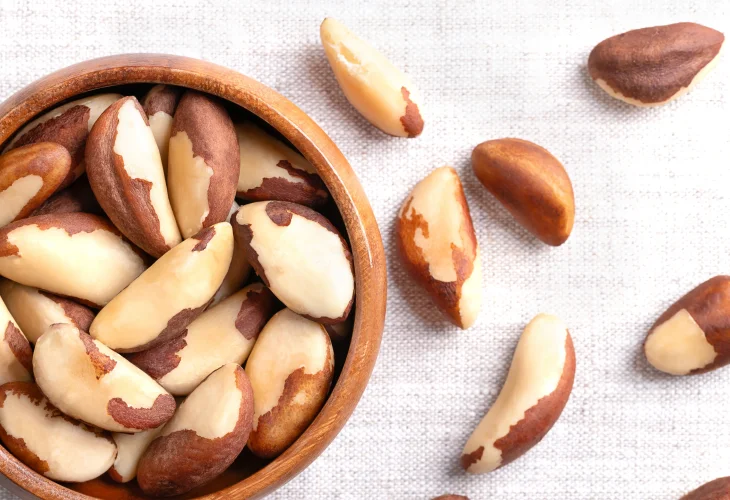Health and Nutrition
Brazil Nuts: Health Benefits and Hidden Risks You Need to Know
Learn how Brazil nuts can boost your health in small doses- and why too much selenium from these nutrient-rich nuts may pose serious health risks.
 (photo: shutterstock)
(photo: shutterstock)Brazil nuts, native to the Amazon rainforest, offer powerful nutritional benefits. At the same time, they carry certain health risks when consumed in excess.
Technically the seeds of a coconut-like fruit, Brazil nuts come from the Brazil nut tree, which can live for hundreds of years. “When included in a balanced diet, Brazil nuts provide numerous health benefits,” say clinical dietitians Liron Paz and Roni Amitsur-Levy, co-founders of Diet Angel. “They’re rich in unsaturated fatty acids, which help reduce cholesterol, support heart health, and lower the risk of inflammation and chronic diseases.”
However, caution is needed due to their very high selenium content. Selenium is an essential mineral, but in large amounts, it can become toxic. On average, a single Brazil nut contains between 70 and 95 micrograms of selenium. The recommended daily intake for adults is about 55 micrograms, while the maximum safe limit is 400 micrograms. “We recommend eating no more than 1–2 Brazil nuts a day, especially since selenium is also found in other foods,” explain Liron and Roni.
Excessive selenium intake can lead to symptoms such as hair loss, fatigue, and even heart and nervous system issues. Additionally, Brazil nuts are calorie-dense, and overeating them may contribute to weight gain. “It’s best to eat Brazil nuts raw and in moderation to enjoy their health benefits while avoiding potential risks,” the dietitians conclude.

